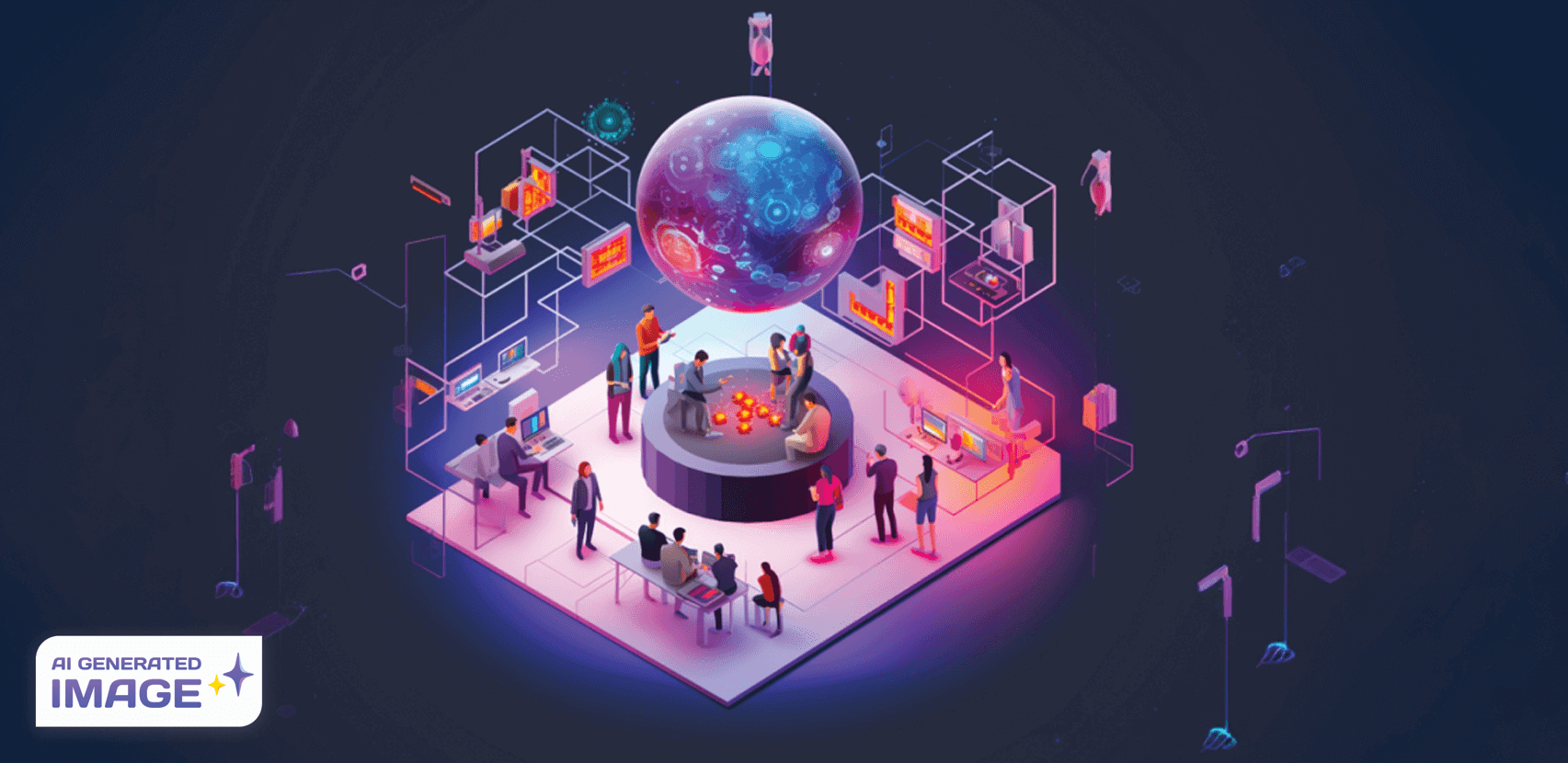
AutoGen by Microsoft - A Game-Changer in AI Collaboration
As the field of Large Language Models (LLMs) continues to expand, more users are searching for effective, scalable, and adaptable frameworks that can support their business’ needs. While some are still struggling in using AI models that deliver subpar outputs, a game-changing framework has emerged that promises to redefine the way we interact with AI — enter AutoGen!
So, what precisely is AutoGen? In this article, we’ll delve into the details and explore the potentials of this innovative framework.
AutoGen Explained
AutoGen is an open source library released by Microsoft that enables multiple AI agents to work together. It was created with the intention to automate the process of building and managing AI agents, seamlessly operating on the user’s or other program’s behalf. Microsoft’s AutoGen framework works together with AI agents that are always on standby, ready to process inputs and deliver high quality outputs.
Imagine having a team of human experts working together, the outputs they produce are more efficient and better than just having a single individual working on a problem. Now, apply that on AI systems by having multiple LLMs, such as ChatGPT, working together to solve a problem — that is AutoGen for you!
AutoGen’s Core Features
- A structure for LLM workflows: Microsoft’s AutoGen simplifies the management, optimization, and automation of large language model (LLM) workflows.
- Integration with other LLMs: AutoGen is not only limited to working with OpenAI’s API as it can also integrate with other LLMs that have an API.
- Customizable and conversable agents: Microsoft’s AutoGen offers customizable and conversable agents that maximize the use of advanced LLMs, compensating for their limitations by integrating human prompts and other tools.
- Automated chats: Agents can have automated conversations, enhancing the efficiency of their collaborations.
How Important is AI Agent Creation?
AI agents are programs that carry out specific tasks within a system and behave autonomously utilizing large language models (LLMs), such as ChatGPT or Claude AI. To accomplish their stated goals, these AI agents can interact with users, other AI agents, and potentially the environment. In essence, you're basically providing your system with a collection of intelligent bots that are capable of adapting and evolving by generating these AI agents within AutoGen.
In the modern world where automation and artificial intelligence is reshaping the way we conduct business, this is vital. If complicated tasks are handled by AI agents, businesses will surely increase their productivity, cut expenses, and produce better outputs.
AI agent capabilities in Microsoft’s AutoGen framework are a combination of resources which are:
AutoGen leverages LLMs, making them a vital component in the backend of AI agents. Additionally, LLMs can adapt to different roles, each linked to unique system messages.
By providing this basic technique to building conversable agents with unique capabilities, the AutoGen framework helps developers design advanced multi-agent conversation systems that can handle a wide variety of tasks effectively.
AutoGen’s Potential Use Cases
AutoGen is still in the early stages and users are experimenting on how it will be used to improve overall efficiency, precision, and consistent productivity in a business context. Here are some of AutoGen’s best use cases for business:
- Project Management Automation
- Operational Efficiency
- Real-time Decision Making
- Innovation and Product Development
Takeaways
AutoGen represents a pivotal leap forward in maximizing the potential of AI. By coordinating intelligent assistants instead of just connecting them, this framework achieves heightened efficiency, accuracy and nuance.
The ability to not only seamlessly integrate multiple LLMs, but also incorporate both human insight and specialized tools, creates versatile AI agents for tackling complex tasks. Within this structured environment, users can efficiently build and deploy custom AI agents that’s purposely built for their needs—whether improving customer interactions or optimizing complex workflows, the applications are vast.
In an AI-driven landscape, AutoGen represents the next stage in harnessing collective intelligence—an organizational advantage for the future. This innovative framework puts the power of AI cooperation directly into the users’ hands.
Sources:
- https://www.microsoft.com/en-us/research/blog/autogen-enabling-next-generation-large-language-model-applications/
- https://microsoft.github.io/autogen/docs/Getting-Started/#:~:text=AutoGen%20is%20a%20framework%20that,and%20seamlessly%20allow%20human%20participation.
- https://www.analyticsvidhya.com/blog/2023/11/launching-into-autogen-exploring-the-basics-of-a-multi-agent-framework/
- https://www.linkedin.com/pulse/unveiling-power-autogen-why-agent-creation-brad-holt
- https://medium.com/@krtarunsingh/mastering-autogen-a-comprehensive-guide-to-next-generation-language-model-applications-b375d9b4dc6d
- https://drlee.io/step-by-step-autogen-by-microsoft-the-future-of-programming-using-autonomous-gpt-like-agents-105ac45a518f
- https://jrodthoughts.medium.com/inside-autogen-microsoft-research-new-autonomous-agent-framework-b413648af24d
- https://www.youtube.com/watch?v=10FCv-gCKug




